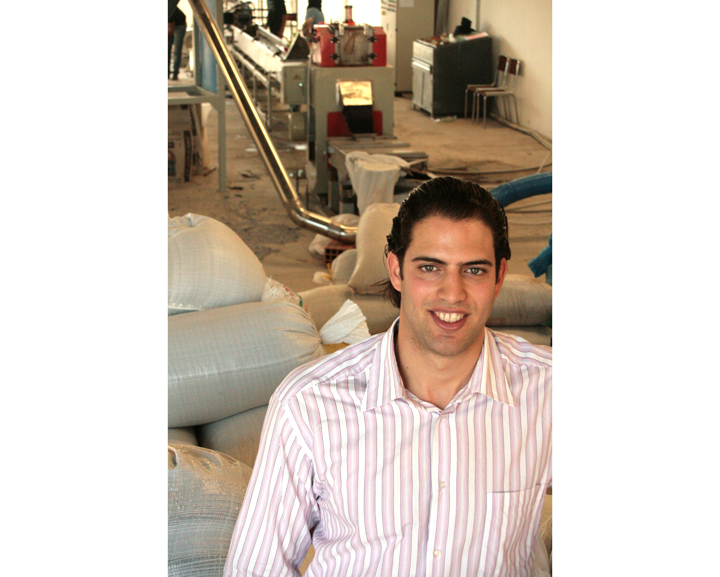

Jobs for Tunisian youth: "We must have a vocation and take risks"

Finding a job is no easy feat in Tunisia, where one in three young people is unemployed. Marouane Ben Othman decided he wanted to start his own business; but, while he had the ideas and the vocation for it, what he needed, he says, is a little push.
“Ever since I was a student, I always believed in my ability to become a project leader. At the time, I had several ideas, but I kept changing my mind every time I unearthed a project that seemed more profitable,” he says.
The push Ben Othman needed came in the form of help from the MDG-Fund. While a student in business school, Ben Othman was selected by a joint UN programme working with the Tunisian government to encourage young entrepreneurs.
"I took a 3-week training [which] allowed me to become familiar with the basic concepts of finance and management in order to develop my own project,” say Ben Othman. Today, the 28-year-old is the president of the “Plastics Manafacturing Company,” which produces biodegradable plastic pellets.
Ben Othman is one of scores of young beneficiaries of the MDG-F-funded programme “Engaging Tunisian youth to achieve the MDGs”, whose aim is to help create jobs in areas of the country that are prone to migration by young people in search of work.
The turmoil which has shaken Tunisia over the past year is directly related to the lack of jobs for young Tunisians, especially in marginalized areas of the North West, West and South. Promoting full and productive employment is an urgent challenge for the new government, which is partnering with five UN agencies in the MDG-F-funded joint programme.
Expanding opportunities
So far, the programme has helped youth like Ben Othman establish 165 small businesses and has trained 146 young entrepreneurs in business creation. Some 134 trainers in civil services, NGOs and public institutions have been given the skills to coach young entrepreneurs, and three regional action plans on youth employment have been formulated for the target areas.
The investments are beginning to have a trickle-down effect. Not only has Marouane Ben Othman created a job for himself, his enterprise, which produces 30 to 40 tons of plastic pellets a month for industrial plastic companies, employees eight other workers.
As Ben Othman presses ahead, investing in his business and consolidating his position in the local market, he
credits the joint programme with encouraging him to pursue his ambition: "I think when we have national and international organizations’ support, when we have ideas and passion for business, we must start. We must take risks and we need a bit of coaching. "
Rising to the global challenge of youth employment
Creating job opportunities for youth is one of the most pressing challenges for the world’s governments. The aftermath of the economic crisis has produced the steepest rise in youth unemployment on record and has raised the risk of what the IMF calls a “lost generation.”
The average unemployment rate among workers ages 15 to 24 in advanced economies is nearly 20 percent, while in countries like Greece and South Africa, nearly half of all young people are out of work. In Tunisia and other Arab States, young people account for between 40 and 60 percent of all those out of work.
The MDG-F’s Youth Employment and Migration programmes operate in 14 countries across five continents, preparing young people to join the work force, helping governments to improve educational systems, advocating for policies that promote full employment for youth, and devising strategies to minimize the risks facing youth who migrate from rural areas.
The programmes -- collaborations between governments and the IOM, UNDP, FAO, ILO, and UNIDO -- are part of the global effort to reach Millennium Development Goal # 1 of ending poverty and hunger, by providing decent work for all people, including women and youth, by the year 2015.
Click here to read other success stories from the MDG-F's work to fight poverty and improve livelihoods around the world.